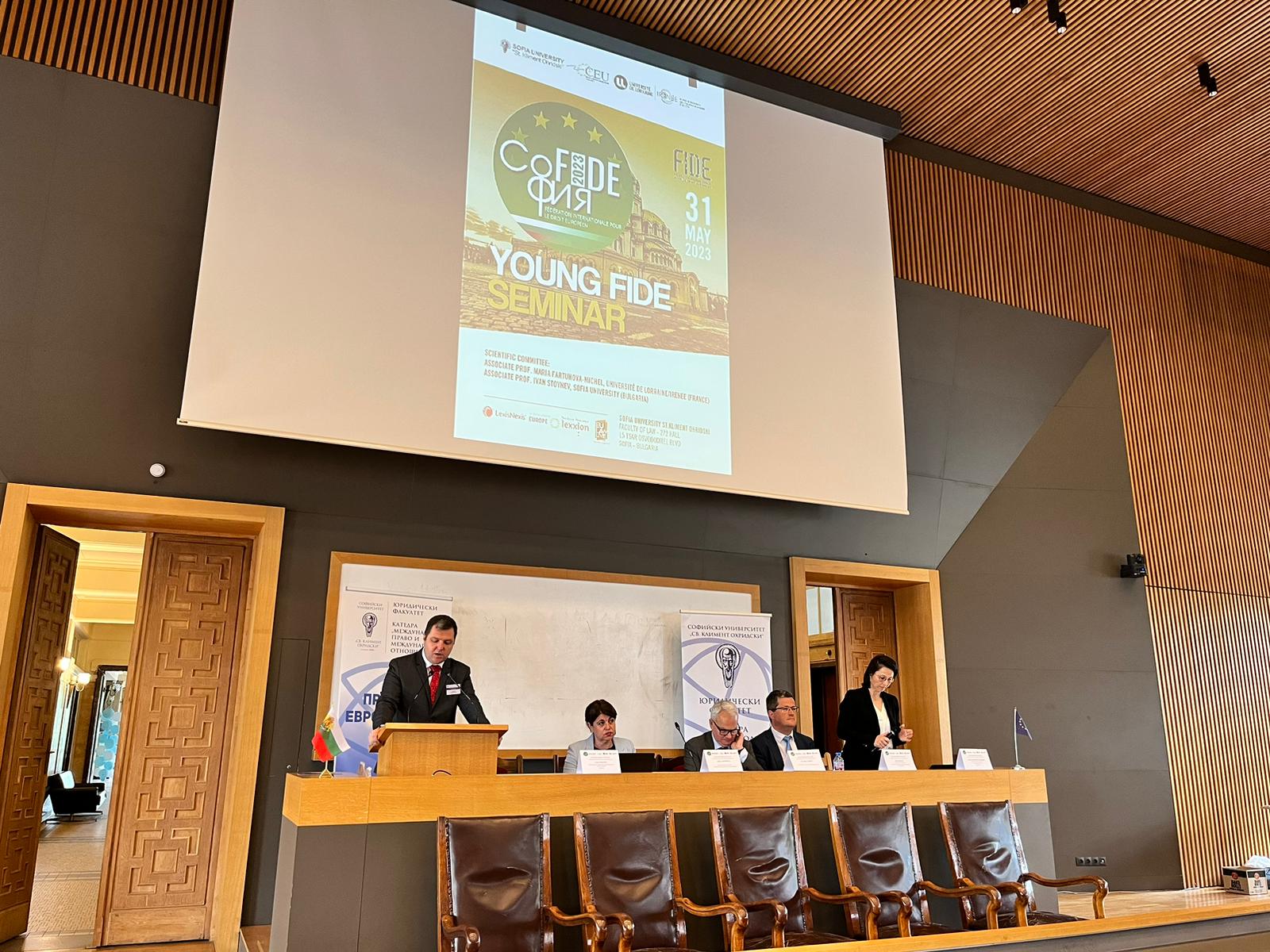The European University Center and the IRENEE Laboratory of the University of Lorraine participated in the organization of the largest scientific forum for doctoral students and young researchers in the field of European Union law – the Young FIDE Seminar. This seminar, hosted by Sofia University “St. Kliment Ohridski,” is an integral part of the 30th Congress of the International Federation of European Law.
Ivan Stoynev, Associate Professor HDR in Sofia, welcomed all participants to the event, who came from across Europe to exchange their experiences and collaborate in the field of European Union law. He emphasized that the scientific forum marked the beginning of the 30th-anniversary congress of the International Federation of European Law.
According to him, both European Union law and the European Union itself are currently going through a challenging period, requiring a clear vision for the future integration process. He highlighted that many documents presented at the event addressed the question of how EU law should evolve today and in the future. The seminar would thus become a useful platform for debating numerous important topics. He concluded by thanking everyone who contributed to the organization of the conference.
Maria Fartunova-Michel, Associate Professor HDR at the University of Lorraine, also greeted all the guests and conference participants. She thanked the organizing committee of the 30th FIDE Congress and emphasized that it was an honor to contribute to the debate on important topics for European integration. She added that this conference is evidence that the collaboration between Sofia University, the European University Center, and the IRENEE Laboratory of the University of Lorraine in France has a great future in the form of high-level scientific projects, strengthening ties with the Faculty of Law through the Master 2 degree in “European Union Law” offered by the European University Center in Sofia.
Aneta Antonova, Vice-President of Sofia University, highlighted that hosting such a prestigious forum is a recognition of the efforts of her alma mater and the Faculty of Law in the development of doctrine in the field of EU law. Over the last 20 years, she and her colleagues have worked to attract some of the most eminent researchers in the field of EU law. The first specialized master’s program in EU law was created through a long-standing partnership with the University of Lorraine. It marked the beginning of specialized doctoral research in the field of European integration law, making Sofia University one of the leading research centers in European law in the country. She expressed confidence that the forum would be beneficial for all participants.
Judge Larsen, Vice-President of the European Court of Justice, also greeted the participants in the iconic Room 272.
The Scientific Committee, chaired by Ivan Stoynev and Maria Fartunova-Michel, selected nine young researchers and practitioners from across Europe to present papers on the main themes of the congress – EU social policy, the rule of law, and issues of mutual trust within the EU.
The organization of the work into thematic panels not only allows participants to present the results of their research but also engages in an open public discussion on the key challenges of integration in the 21st century. The organization of such a scientific forum undoubtedly recognizes the efforts of Sofia University and especially the Faculty of Law for the development of doctrine in the field of EU law over the last 20 years, becoming one of the main scientific centers of European law in Bulgaria.
The event also included the official presentation of the book “70 Years of European Union Law,” organized by the Academy of European Law (ERA) in cooperation with the legal service of the European Commission. Representatives of the Court of Justice of the European Union, as well as judges from the Supreme Court of Cassation and the Supreme Administrative Court, participated in the discussion on “The Role of EU Law in the Bulgarian Legal System in Light of the Preliminary Reference Mechanism.”




